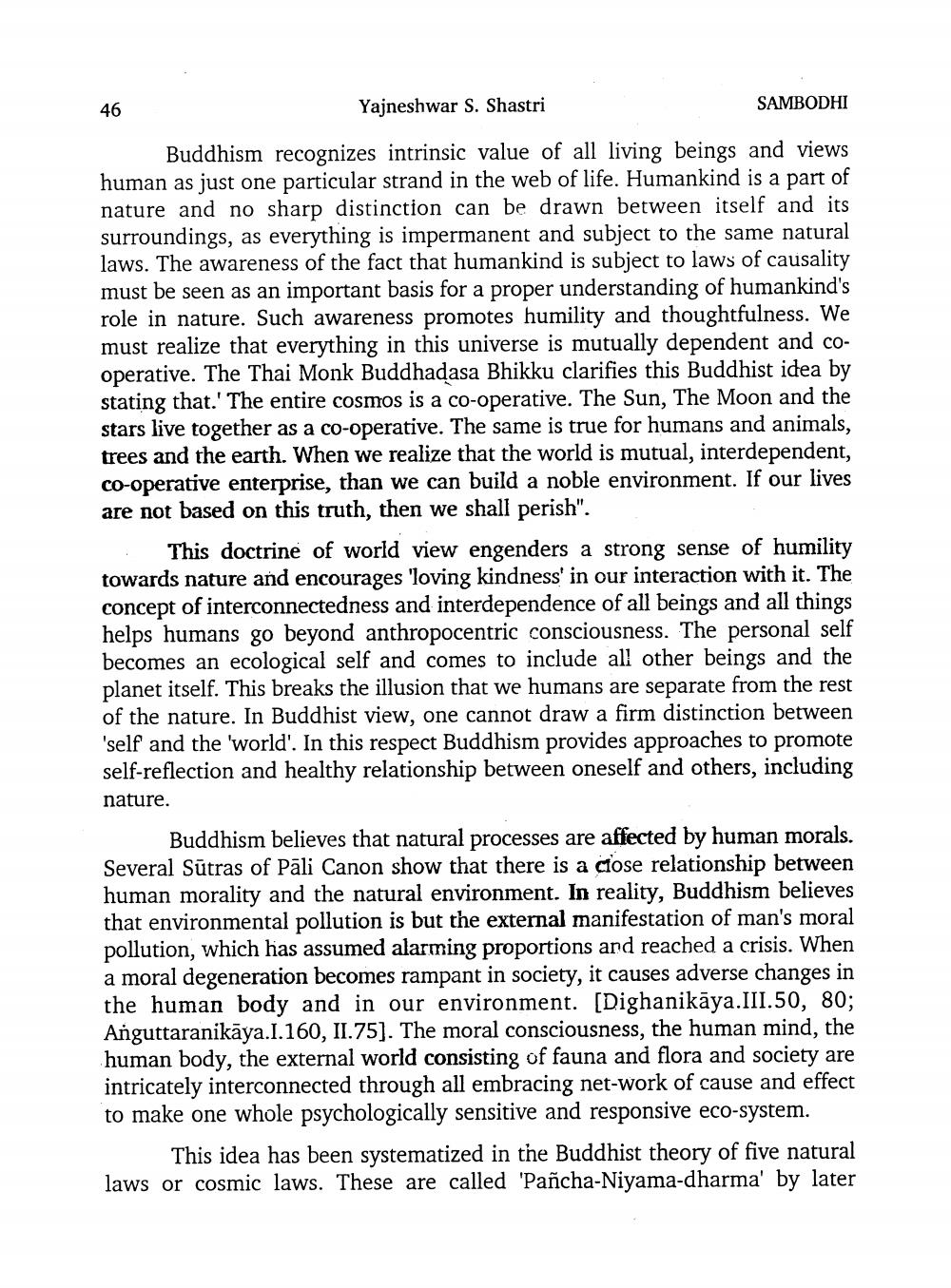________________
46
Yajneshwar S. Shastri
SAMBODHI
Buddhism recognizes intrinsic value of all living beings and views human as just one particular strand in the web of life. Humankind is a part of nature and no sharp distinction can be drawn between itself and its surroundings, as everything is impermanent and subject to the same natural laws. The awareness of the fact that humankind is subject to laws of causality must be seen as an important basis for a proper understanding of humankind's role in nature. Such awareness promotes humility and thoughtfulness. We must realize that everything in this universe is mutually dependent and cooperative. The Thai Monk Buddhadasa Bhikku clarifies this Buddhist idea by stating that.' The entire cosmos is a co-operative. The Sun, The Moon and the stars live together as a co-operative. The same is true for humans and animals, trees and the earth. When we realize that the world is mutual, interdependent, co-operative enterprise, than we can build a noble environment. If our lives are not based on this truth, then we shall perish".
This doctrine of world view engenders a strong sense of humility towards nature and encourages 'loving kindness' in our interaction with it. The concept of interconnectedness and interdependence of all beings and all things helps humans go beyond anthropocentric consciousness. The personal self becomes an ecological self and comes to include all other beings and the planet itself. This breaks the illusion that we humans are separate from the rest of the nature. In Buddhist view, one cannot draw a firm distinction between 'self and the 'world'. In this respect Buddhism provides approaches to promote self-reflection and healthy relationship between oneself and others, including nature.
Buddhism believes that natural processes are affected by human morals. Several Sūtras of Pali Canon show that there is a close relationship between human morality and the natural environment. In reality, Buddhism believes that environmental pollution is but the external manifestation of man's moral pollution, which has assumed alarming proportions and reached a crisis. When a moral degeneration becomes rampant in society, it causes adverse changes in the human body and in our environment. [Dighanikāya.III.50, 80; Anguttaranikāya.I.160, II.75]. The moral consciousness, the human mind, the human body, the external world consisting of fauna and flora and society are intricately interconnected through all embracing net-work of cause and effect to make one whole psychologically sensitive and responsive eco-system.
This idea has been systematized in the Buddhist theory of five natural laws or cosmic laws. These are called 'Pañcha-Niyama-dharma' by later




